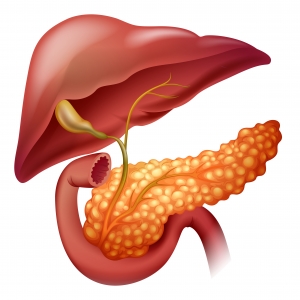Irritable Bowel Syndrome – Signs and Symptoms
Irritable Bowel Syndrome (IBS) is a gut disorder affecting the large intestine. Though the exact cause is not known, this chronic condition is thought to be the result of hormonal or bacterial changes in the gut, as well as the disruption in communication between one’s gut and brain; as together they are tasked with controlling digestion.
While the syndrome afflicts mostly those under the age of 50, women are twice as likely than men to suffer from IBS. The following are the most common signs and symptoms of IBS, most of which can be relieved with the passing of a bowel movement.
Signs & Symptoms
- Cramping & Abdominal Pain
- Bloating & Gas
- Diarrhea and or Constipation
Pain is usually felt as the muscles in the lower abdomen contract and excessive gas from bacteria can leave the stomach feeling full and protruding.
The three main types of IBS are:
- Diarrhea-Predominant (D-IBS)
- Constipation-Predominate (C-IBS)
- Alternating Constipation and Diarrhea (A-IBS)
Both diarrhea and constipation are key symptoms of IBS. This is because the condition causes the muscles to contract in an abnormal way. As a result, they either speed up or slow down one’s bowel movements. Blood or mucus in the stool is another sign for concern as well.
While there is no cure for IBS, one’s diet, lifestyle and stress levels can play an important role in managing the symptoms.
Diet
Removing specific carbohydrates form one’s diet may help prevent flare ups. Food allergies, a lactose intolerance and celiac disease for example tend to cause inflammation and irritation in the gut.
Lifestyle
Exercise and proper sleep have been effective in stimulating normal contractions in the intestines. Additionally, proper hydration, high fiber foods and natural or probiotic supplements can help regulate bowel movements.
Stress
As the nervous system controls the gut, IBS is also thought to be linked to one’s mental health. Effectively treating anxiety, depression and stress therefore could help reduce psychological events that may be triggering IBS.
As one’s sensitivity varies from person to person, a gastroenterologist can help best identify IBS triggers. A gastroenterologist can also and discuss options for managing symptoms with or without medication. More serious signs of IBS including weight loss, pain that isn’t relieved by gas or a bowel movement, fever, vomiting, and iron deficiency. These symptoms might be indicative of colon cancer. Those with a family history of IBS and or mental health issues are at more of a risk for suffering from the condition. In order to get an accurate diagnosis and treatment regiment, it is recommended that you see a specialist in digestive diseases
If you are experiencing some of the signs and symptoms of IBS contact Gastroenterology Health Partners today. Our clinical team of 21 fellowship-trained Gastroenterologists and 13 advanced practice clinicians have been providing care to patients suffering from disorders of the digestive system since 2013. Each of our five locations in the Louisville, Lexington and Southern Indiana area offer expert specialization in gastrointestinal care. Just visit our website to schedule an appointment at the location most convenient to you.







